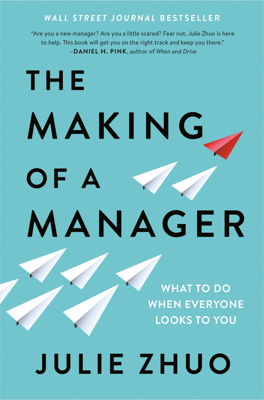Hiring Well
Julie Zhuo recounts her experience hiring a candidate named Tom who, despite not performing exceptionally well in his interview, was hired due to the potential seen in his dedication and thoughtfulness, which later proved to be a valuable decision. This story underscores the importance of hiring well as a fundamental aspect of building a successful team.
Design Your Team Intentionally
- Plan hiring needs ahead to avoid impulsive decisions and ensure the addition of valuable team members.
- Create an organizational plan yearly, mapping out future team structure, identifying skill gaps, and prioritizing traits and experiences that would strengthen the team.
- Adjust the plan as necessary to stay ahead of hiring needs and account for changes.
Hiring Is Your Responsibility
- Participate actively in the hiring process alongside recruiters to identify and attract top candidates.
- Provide precise job descriptions and be specific about the required skills and experiences.
- Develop a sourcing strategy by brainstorming with recruiters and looking for specific patterns or keywords in résumés.
- Ensure an amazing interview experience through detailed planning and collaboration with recruiters.
Hiring Is a Gamble, but Make Smart Bets
- Realize the inherent unpredictability of hiring based on short interviews.
- Examine Past Work: Use past examples of similar work to gauge future performance.
- Seek Trusted Recommendations: Leverage credible sources for feedback on candidates.
- Engage Multiple Interviewers: Have candidates meet with several team members to reduce bias and gather diverse perspectives.
- Avoid Consensus Hires: Look for passionate advocates rather than weak, unanimous approvals.
Additional Best Practices
- Prepare Interview Questions Ahead of Time: Familiarize yourself with the candidate’s background and keep a consistent set of questions.
- Reject Toxic Behavior: Avoid candidates exhibiting arrogance, lack of self-awareness, or negative attitudes.
- Prioritize Diversity: Actively seek out diverse candidates to foster creativity and avoid biases.
- Hire for Potential: While addressing current needs, hire people capable of handling larger roles in the future.
Managing the Recruiting Funnel
- Understand that hiring at scale requires diligent execution and systematic tracking of metrics through the recruiting funnel.
- Break the process down into manageable steps and involve the entire team in maintaining recruiting momentum.
Hiring Leaders
- Approach leadership hires with careful consideration due to their broader impact.
- Do Your Research: Engage with potential candidates and industry leaders to understand the ideal candidate profile.
Building Relationships with Top Talent
- Recognize that recruiting top talent is often about long-term relationship building. Even if a candidate initially declines, maintaining a relationship can lead to future opportunities.
Bench Strength and Organizational Stability
- Develop a strong bench of potential leaders to ensure organizational stability in the manager’s absence.
- Establish a culture where team building is a collective responsibility, ensuring that hiring excellence perpetuates throughout the organization.
Create a Culture That Prioritizes Hiring Well
- Delegate hiring responsibilities and decision-making to leaders within the team.
- Emphasize the importance of careful team-building through coaching and setting clear values.
- Foster a culture where building the team is recognized as everyone's job, ensuring continuous growth and improvement.
Conclusion
Julie Zhuo emphasizes the critical role of proactive, intentional hiring, and the importance of involving the entire team in the recruiting process to build a strong and diverse team capable of driving long-term success.
